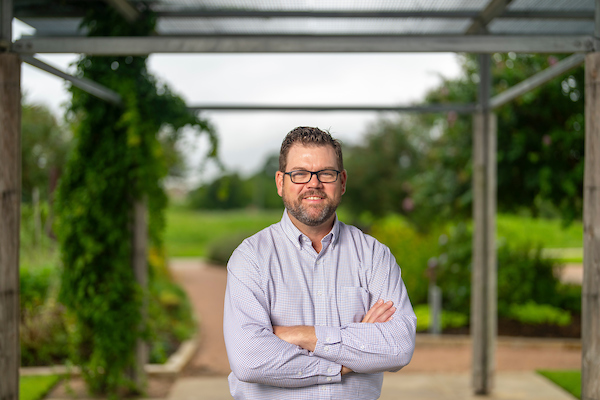Riera-Lizarazu named new Basye Endowed Chair in Rose Genetics
Rose program to continue advancing science behind sustainable rose breeding
Oscar Riera-Lizarazu, Ph.D., has been named the Robert E. Basye Endowed Chair in Rose Genetics, a role dedicated to the advancement of research, education and outreach related to roses in the Texas A&M College of Agriculture and Life Sciences Department of Horticultural Sciences.
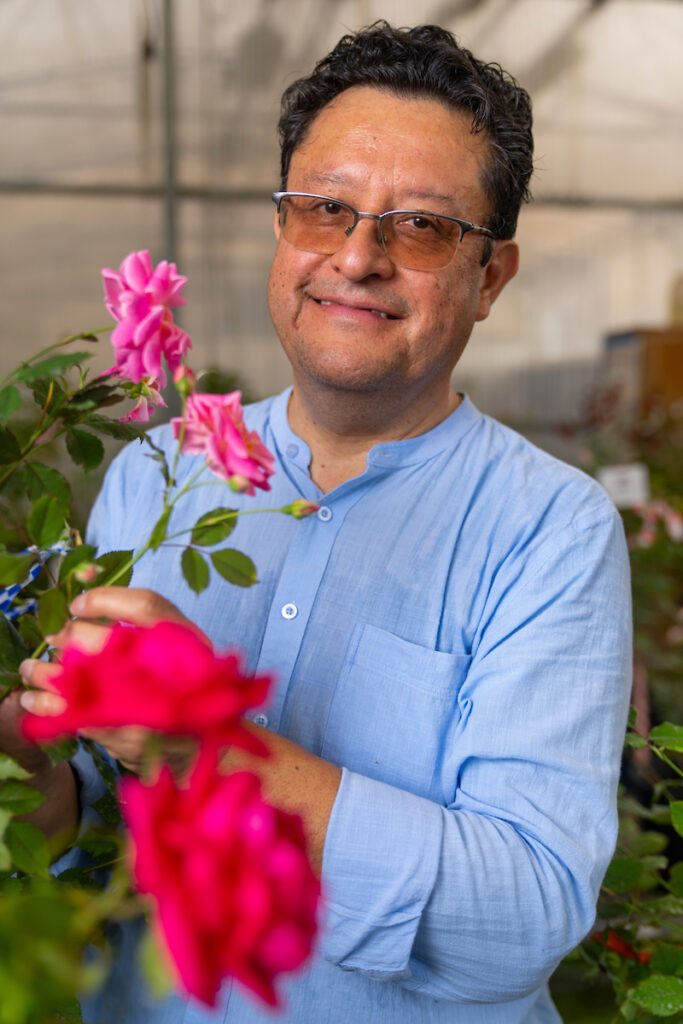
Riera-Lizarazu is a Texas A&M AgriLife Research plant geneticist, associate professor and associate department head for graduate programs in the Department of Horticultural Sciences. He has more than two decades of national and international research experience in plant genetics, cytogenetics and breeding.
His research focus has been rose genetics and breeding since arriving at Texas A&M in 2019.
“This is an exciting time for plant breeders because of the tools available for genetic analysis and mapping,” he said. “The Basye chair position provides a great platform for the rose breeding program to impact the industry by creating varieties that perform well and look amazing.”
About the Basye Endowed Chair
The Robert E. Basye Endowed Chair in Rose Genetics was established in 1991 by Robert Basye, a mathematics professor at Texas A&M and hobby rose breeder. Basye’s endowment effectively created the Department of Horticultural Sciences’ rose genetics program that had been chaired by professor and plant breeder David Byrne, Ph.D., since its inception.
Riera-Lizarazu said the endowment provides critical, consistent funding for the rose program’s research, education and outreach efforts. The program has led major research efforts to address diseases like rose rosette, black spot and Cercospora leaf spot while also seeking aesthetic improvements for roses.
“Roses were a passion of Dr. Basye’s,” Riera-Lizarazu said. “He saw fit to invest in rose research at Texas A&M when that type of research didn’t exist. We’re hoping to continue impactful work in rose genetics and elevate those impacts to a new level through developments with genomics and biocomputational and data science.”
Rose program leads through innovation
Riera-Lizarazu said he is excited about the rose program’s future. Roses continue to be in high demand as an ornamental commodity, and AgriLife Research is among the few institutions advancing the science behind rose breeding through genetics.
The position also provides opportunities to train future professionals in applied and basic research and produce science-based data and knowledge that can be utilized by stakeholders, including growers and the rose-loving public.
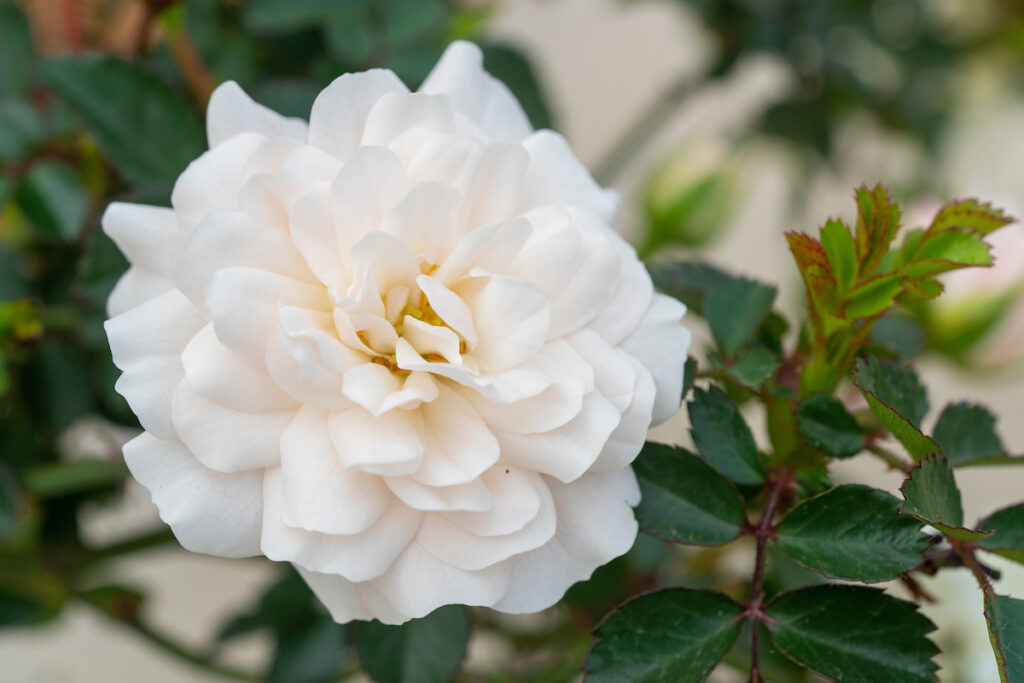

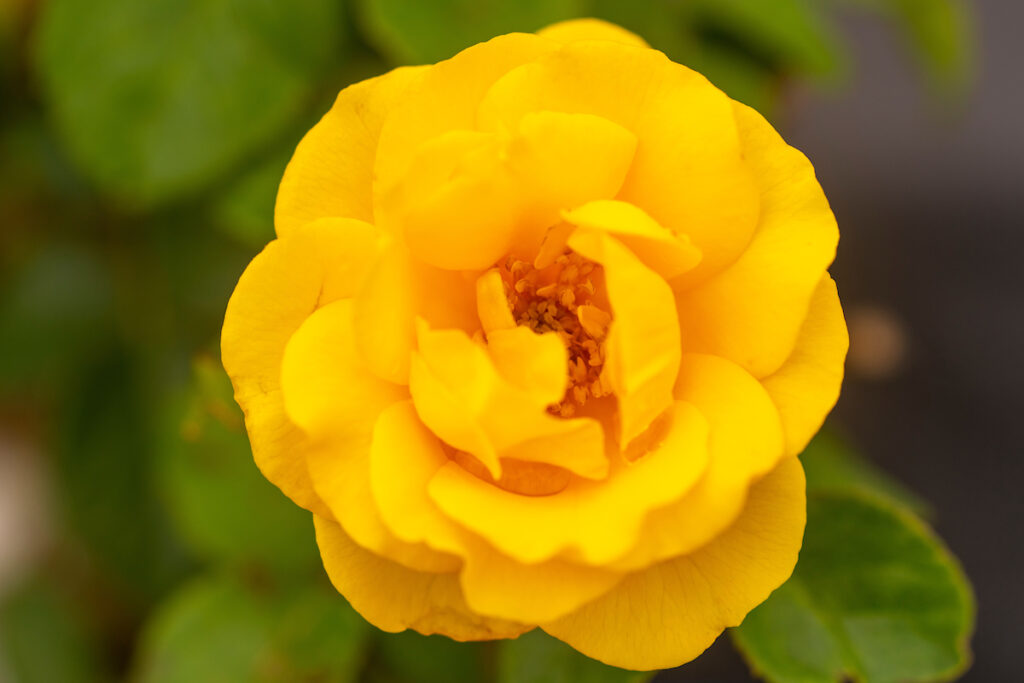
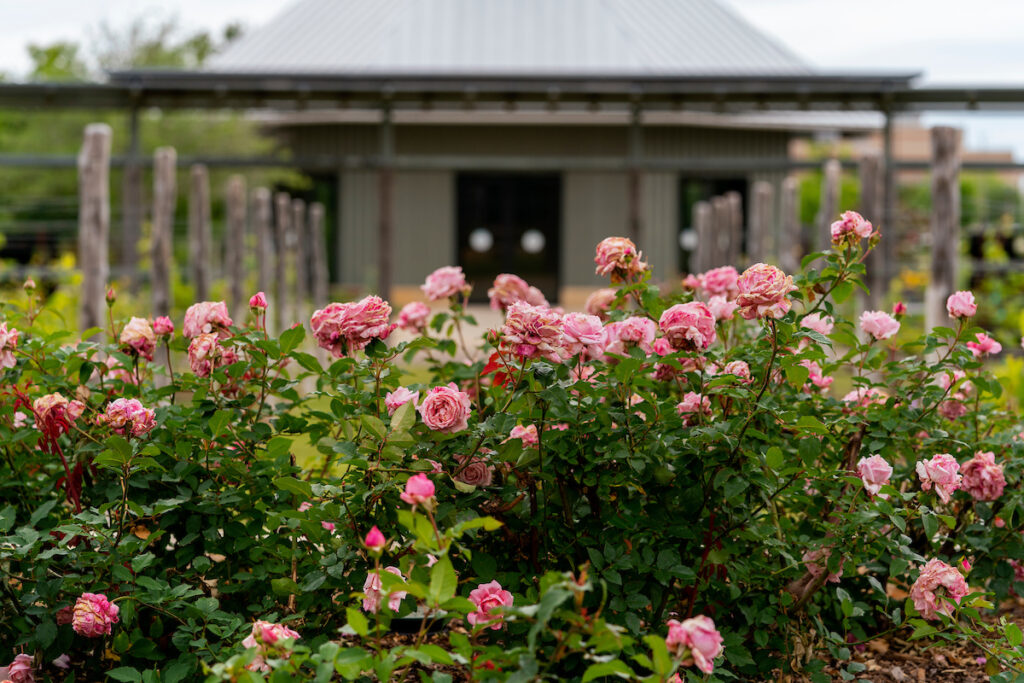
Riera-Lizarazu said he continues to be engaged directly with stakeholders regarding rose industry priorities. Stakeholder interactions and surveys have shown there is a demand for carefree and sustainable roses that require reduced inputs, are disease and pest-resistant, are tolerant to abiotic stresses, and have superior ornamental quality.
“My vision for the position is to use it as a platform to continue our work on roses and for this program to explore ways to improve them by using new ideas and new technology and tools,” he said. “That type of exploration requires collaboration that crosses disciplines like plant pathology, entomology, horticulture and economics, as well as partners including the green industry, federal agencies such as the U.S. Department of Agriculture, and researchers at other universities.”


